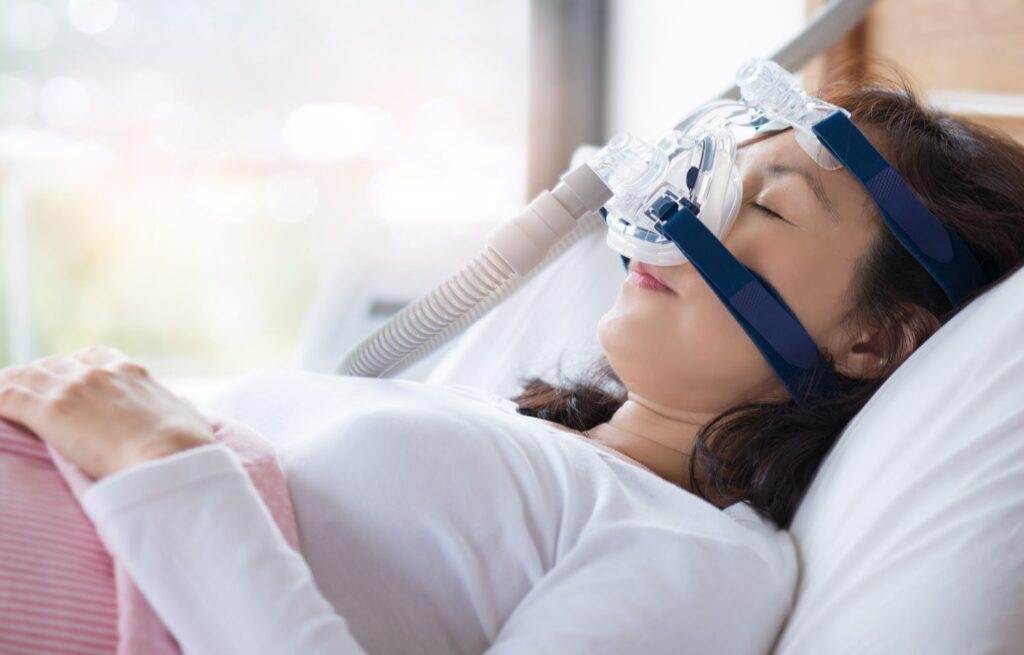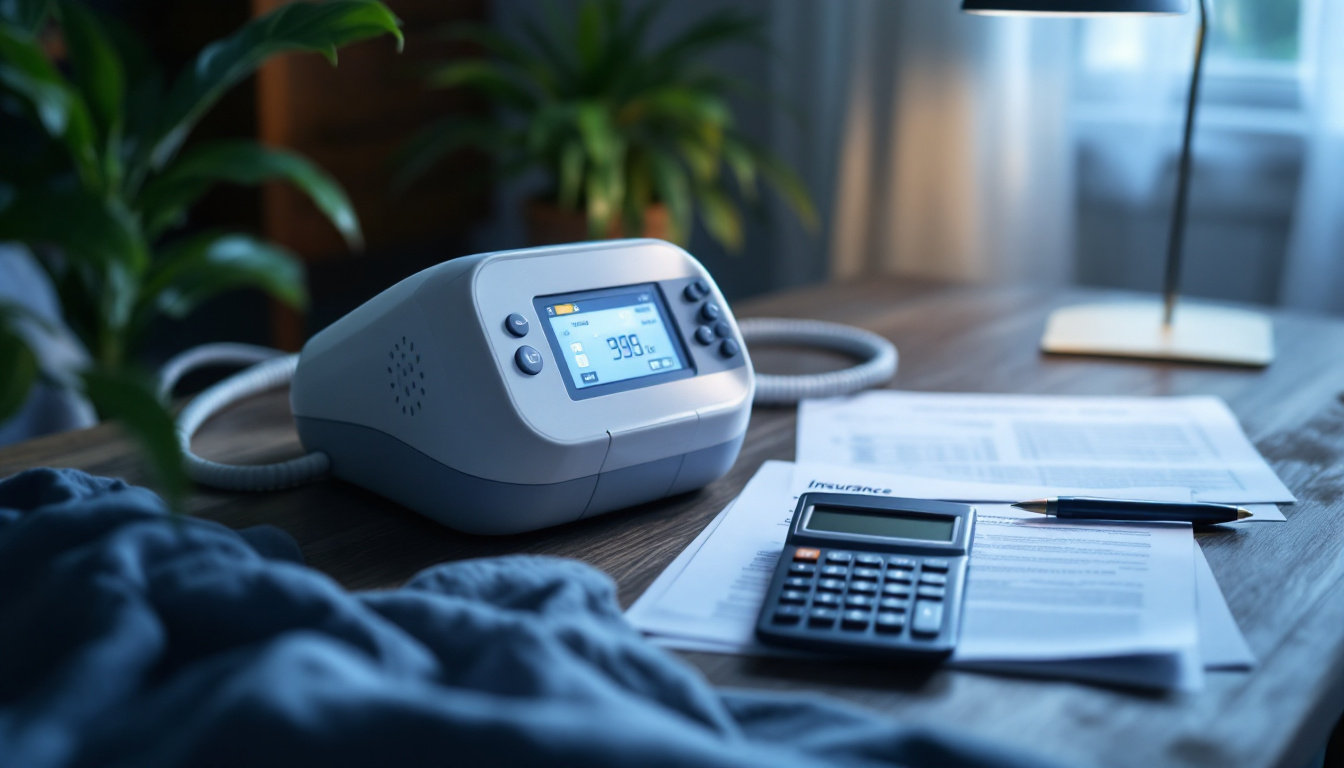Choosing the right CPAP (Continuous Positive Airway Pressure) machine can be a crucial decision for those suffering from sleep apnea. There are various factors to consider, including functionality, comfort, and cost. This guide will provide you with essential information to make an informed decision about the best CPAP machine for your needs.
Understanding the Importance of a CPAP Machine
A CPAP machine plays an essential role in managing obstructive sleep apnea (OSA). This condition obstructs the airway during sleep, leading to disruptions in breathing and, consequently, sleep quality. A properly functioning CPAP machine ensures a consistent flow of air to keep the airway open, allowing for uninterrupted sleep.
For individuals diagnosed with sleep apnea, using a best CPAP machine can significantly improve overall health and well-being. The therapy is often recommended by healthcare providers as a foundational method for control of the condition, emphasizing the importance of adhering to treatment plans. Many patients find that the initial adjustment to wearing a CPAP mask can be challenging, but with time and proper guidance, they can adapt to this life-changing device.
The Role of CPAP in Sleep Apnea Treatment
The primary function of a CPAP machine is to eliminate or reduce the obstruction of the airway, which is a characteristic of sleep apnea. By maintaining a steady stream of air pressure, it prevents the soft tissues at the back of the throat from collapsing while sleeping.
This treatment not only alleviates symptoms like loud snoring and fatigue but also reduces the risk of more serious health issues, such as heart disease, diabetes, and high blood pressure. Consistent use of a CPAP machine can lead to a better quality of life and improved morning energy levels. Additionally, many users report a newfound sense of alertness and cognitive clarity, which can enhance productivity and overall mood throughout the day.

Health Benefits of Using a CPAP Machine
The health benefits associated with the regular use of a CPAP machine extend beyond just sleep improvement. Users often report feeling more alert and less fatigued during the day. Other benefits include reductions in headache frequency, lower risks of stroke, and improved mental health due to better sleep quality.
Moreover, patients using CPAP therapy often experience fewer complications from underlying health conditions like hypertension or cardiovascular diseases. Thus, investing in a quality CPAP machine is not just about treating sleep apnea; it is also about enhancing overall well-being. Furthermore, the psychological impact of improved sleep cannot be overlooked, as many individuals find that their anxiety levels decrease and their ability to cope with daily stressors improves significantly. This holistic enhancement of health underscores the critical role that CPAP machines play in the lives of those affected by sleep apnea.
Key Features to Consider When Buying a CPAP Machine
When selecting a CPAP machine, understanding key features can lead you to the most suitable choice for your specific needs. Key variables to consider include noise level, humidification, and portability. These elements will directly affect your comfort and ease of use.
Noise Level and Comfort
No one wants a machine that disrupts their sleep, so the noise level of CPAP machines is a critical factor. Many modern CPAP models are designed with quiet operating systems, but it is still essential to check the decibel ratings before making a purchase.
Comfort is paramount; you will want a machine that feels lightweight and unobtrusive. Features such as adjustable pressure settings and masks tailored to your facial structure play a significant role in user comfort during nighttime use. In addition, some machines offer advanced features like auto-adjusting pressure, which can adapt to your breathing patterns throughout the night, ensuring that you receive optimal therapy without unnecessary discomfort. Find more about pressure on https://www.me.psu.edu/cimbala/Learning/Fluid/Pressure/pressure_basics.htm
Humidification Capabilities
Dry air from a CPAP machine can lead to nasal irritation and discomfort. Therefore, many machines come equipped with built-in humidifiers that add moisture to the air. This feature is vital for individuals who already suffer from sinus issues or respiratory conditions.
When considering humidification, look for models that allow you to adjust the humidity level according to your comfort. This flexibility ensures that you can customize your therapy experience to suit your unique needs. Some advanced models even feature heated humidifiers that can enhance comfort further, particularly in colder climates where dry air can exacerbate symptoms.
Portability and Size
For those who travel frequently, portability is another essential feature to consider. Lightweight and compact models can make it easier to maintain your therapy routine while on the go. Some CPAP machines come with carrying cases and travel-friendly designs.
Additionally, if you have limited space at home, picking a machine that doesn’t take up much room is advantageous. Be sure to assess the size of the machine and any additional equipment required, such as oxygen tanks or hoses. Furthermore, consider the battery life of portable models, as some come with rechargeable batteries that allow for use during flights or camping trips, ensuring you never miss a night of therapy regardless of your location. The convenience of having a machine that fits seamlessly into your lifestyle cannot be overstated, as it encourages adherence to your treatment plan.
Different Types of CPAP Machines
Understanding the various types of CPAP machines can aid in selecting the one that best fits your lifestyle and needs. The three main types are standard CPAP machines, auto-adjusting CPAP machines, and bi-level positive airway pressure (BiPAP) machines.
Standard CPAP Machines
Standard CPAP machines deliver a consistent air pressure throughout the night. This simplicity makes them a favorite among many users. They are typically more affordable than more advanced models, although their lack of adaptability may not suit everyone.
These machines are ideal for individuals with established air pressure requirements who do not anticipate significant changes to their therapy needs. To learn more about air click here.
Auto-Adjusting CPAP Machines
Also known as auto CPAP machines, these devices automatically adjust the air pressure as needed throughout the night. As a person transitions through different sleep stages, the machine responds to the changing airflow requirements, providing personalized therapy.
Autoadjusting solutions are a great option for users whose pressure needs might vary, as they offer greater comfort and potentially improve sleep outcomes.
Bi-Level Positive Airway Pressure Machines
BiPAP machines differ from standard and auto CPAP machines in that they offer two levels of pressure: one for inhalation and a lower one for exhalation. This feature can make it easier for some individuals to breathe, particularly those who struggle with a constant high-pressure air supply.
BiPAP units are typically recommended for more complex cases of sleep apnea or when the standard CPAP machine isn’t effective. However, they come at a higher price point, making it essential to consult a healthcare provider before making a decision.
Maintenance and Cleaning of Your CPAP Machine
Routine maintenance is crucial for the longevity and effectiveness of your CPAP machine. Regular cleaning and part replacement can prevent the buildup of bacteria and ensure optimal performance.
Regular Cleaning for Optimal Performance
It is recommended to clean your CPAP machine components, including the mask, hose, and water chamber, on a regular basis—ideally daily or weekly. Most manufacturers recommend using mild soap and warm water to avoid any damage to the components.
In addition to cleaning, ensure that all parts are dry before reassembling, as moisture can lead to the growth of mold and bacteria. Keeping your CPAP machine clean not only enhances its performance but also promotes better health outcomes.
Replacement of CPAP Parts
Over time, parts can wear down and may need replacing. Common components that require replacement include masks, cushions, and filters. Most manufacturers provide a recommended replacement schedule, often suggesting every few months for masks and up to a year for hoses.
Paying attention to these timelines is essential to ensure the machine operates properly and that you receive the therapy benefits you need. Compliance with these schedules can significantly impact your overall experience and health.
Insurance and Cost Considerations for CPAP Machines
Understanding the financial implications of purchasing a CPAP machine is critical. Given that these devices can be quite costly, being aware of insurance coverage and potential out-of-pocket costs can ease the financial burden.

Understanding Insurance Coverage
Many health insurance policies cover CPAP machines, but coverage can vary widely. It is essential to check with your insurer to understand the specific provisions regarding CPAP therapy.
Documentation from your healthcare provider may be required to initiate the claims process. Additionally, look into whether the insurance covers the cost of necessary accessories, such as masks and replacement parts.
Out-of-Pocket Costs and Financing Options
As costs associated with CPAP therapy can add up, many providers offer financing options to help manage expenses. Some companies also have rental programs that allow you to try a CPAP machine before committing to a purchase.
Ultimately, understanding all available options will help you make an informed choices that suit both your health and financial needs.
Taking the time to explore these considerations can ensure you invest in a CPAP machine that significantly enhances your quality of sleep and overall health.
